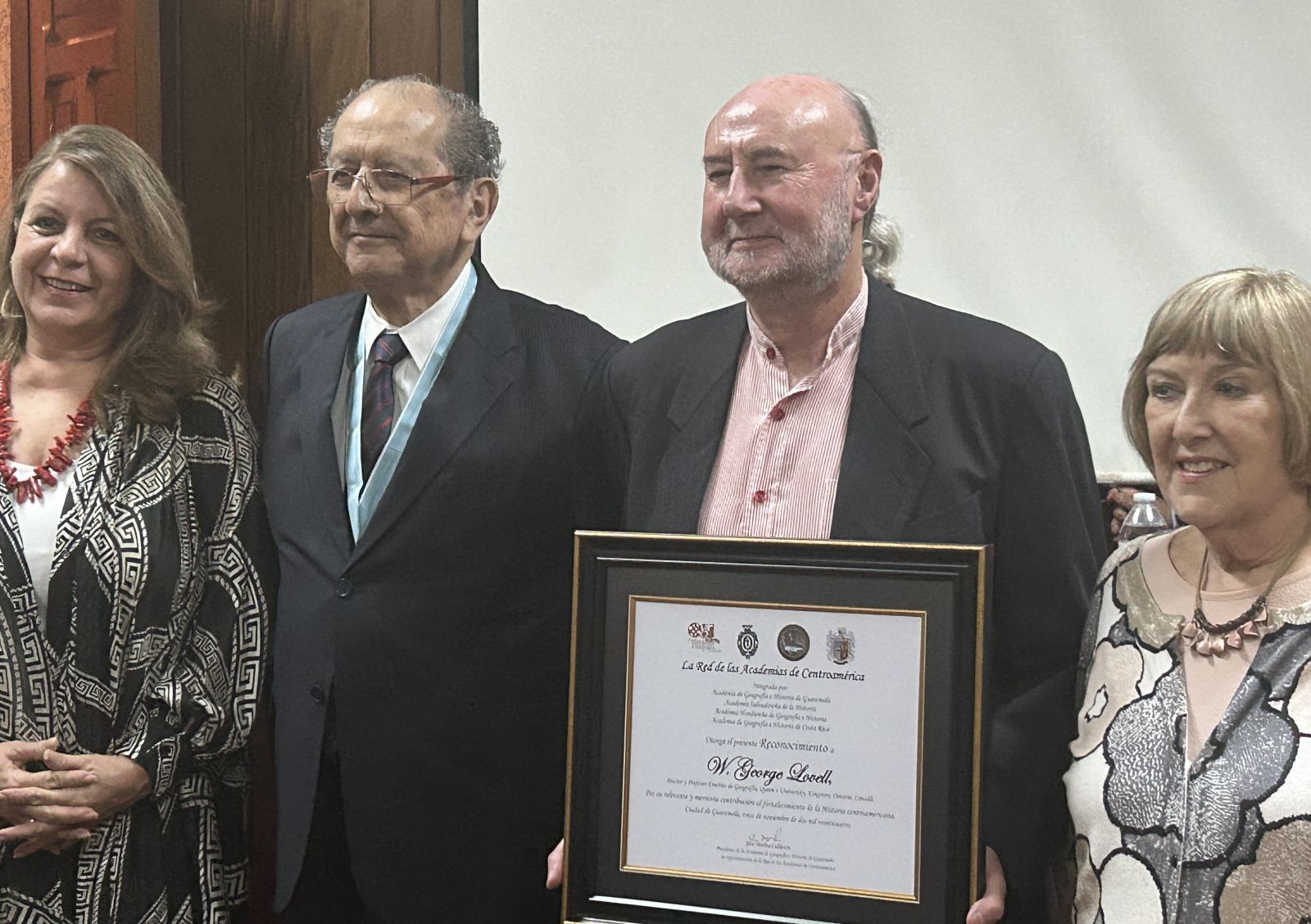
Presenting Dr. Lovell with his award were (l to r): Coralia Anchisi de Rodríguez, Vice-president of the Academy of Geography and History of Guatemala, José Molina Calderón, President of the Academy of Geography and History of Guatemala, Dr. Lovell, and Regina Wagner, Past-president of the Academy of Geography and History of Guatemala.
A lifetime of research rewarded
Faculty of Arts and Science geographer W. George Lovell has received an Award of Public Recognition for his research, teaching, and publications on the history of Central America, an honour extended him jointly by the Academies of Geography and History of Guatemala, Honduras, El Salvador, and Costa Rica.
The award singles out Dr. Lovell’s long-standing commitment to generating and disseminating knowledge about Central America, foremost of all its experiences of conquest and how the region fared under Spanish colonial rule. The award coincides with the 500th anniversary of imperial Spain’s devastating intrusion. Dr. Lovell’s research findings emphasize that the repercussions of violent confrontation centuries ago resonate and scar still, nowhere more than in Guatemala, the country he has written on most extensively.
“The award’s joint provenance is what makes it noteworthy and one to cherish,” Dr. Lovell explains. “The nations in question – Costa Rica, El Salvador, Guatemala, and Honduras – more often than not compete and contest rather than coordinate and collaborate.”
He adds: “Given the normal bickering and dissention between them, having learned societies from four countries convene and agree to a collective nod is a rare and heartening occurrence.”
Dr. Lovell’s research examines the varying nature of Central American colonial experiences, especially the impact and legacy of Spanish conquest. Ascertaining how Indigenous peoples fared in the wake of invasion is a primary focus. Maya communities in Guatemala, for instance, withstood the Spanish onslaught more resiliently than their native counterparts in Costa Rica, El Salvador, Honduras, and Nicaragua. Because of differing colonial experiences, Guatemala's population is today almost half Indigenous Maya whereas mixed-race populations predominate elsewhere in the region.
Learn more about Dr. Lovell’s research on his website.

